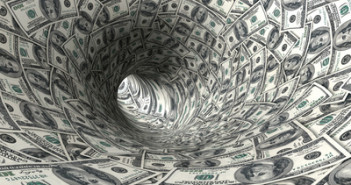US politicians did it again: they reached a temporary solution in the last minute, or actually after the last minute.
While the fiscal cliff was averted, a significant part of the problems were just pushed back to the end of February. Perhaps this time, can they reach solutions before the deadline?
* This article is part of the January 2013 monthly forex report. You can download the full report by joining the newsletter in the form below.
The 113th Congress has a bigger majority for Democrats in the Senate and a smaller majority for Republicans in the House. Nevertheless, the two chambers are still split. Also the Republican Party seems split: the fiscal cliff deal passed the House with only a minority of Republicans voting for it.
Obama and the Republicans did reach a deal on taxes, by extending the Bush era tax cuts for most Americans, while raising them for the more wealthy ones. There were also agreements on the estate and dividend taxes.
So, everything tax related is behind us. However, the spending issues are still here. Republicans want cuts in welfare, while Democrats prefer to avert them, and preferably cut more in defense. As part of the fiscal cliff deal, automatic cuts have been postponed by two months. The so-called “sequester” has been pushed back to the end of February.
The end of February is also when the debt ceiling is expected to be reached. This combination could be more dangerous than the fiscal cliff. We have already seen politicians scramble in the summer of 2011 to tackle the debt ceiling. The debacle resulted in a credit rating downgrade from S&P.
Republicans want a dollar cut in spending for every dollar raised in the debt ceiling. Democrats prefer to raise the ceiling more than the cuts in spending.
What we are likely to see in January is time wasting: slow negotiations and a blame game between the two parties. If a deal will be reached during January, it will be a positive surprise and will likely lead to a “risk on” behavior – a drop for the safe haven dollar and Japanese yen in the short term.
In the longer term, the reaction depends on the contents of the deal. The best deal would be more stimuli now with a clear long term plan to curb the debt. Such an outcome is probably too much to ask, and we will probably get some medium term compromise that offers little stimulus now and no clarity for the future.
If, as expected, nothing happens during January, the focus will shift away from US politics during this month.
